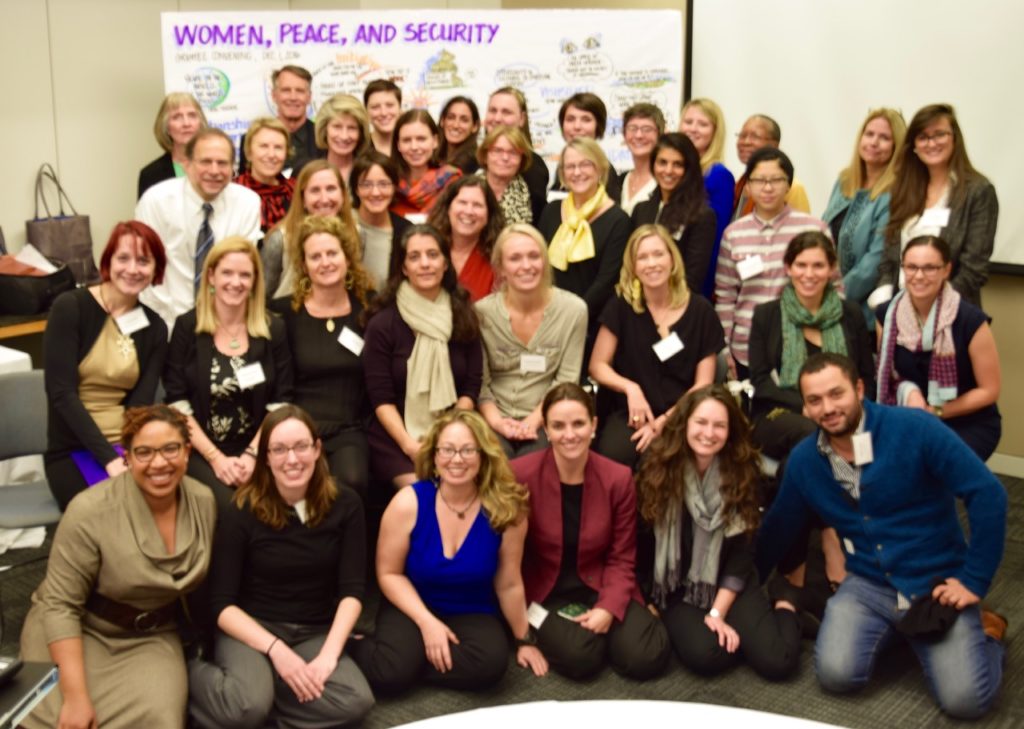Women, Peace, & Security Initiative
Advancing a gender lens in U.S. foreign policy and national security
Gender equity is key to peaceful and secure societies. In fact, it is the strongest predictor of a country’s stability—but foreign policy and national security analysis rarely take gender into account.
In 2015, compelled by this data, the Compton Foundation Board approved a special grantmaking project to advance women’s leadership and a gender lens in U.S. foreign policy and national security decision-making, allocating $5 million toward the project from 2016–2018. Looking ahead to the 2016 presidential elections, the Women, Peace, and Security Initiative (WPSI) aimed to put in place the civil society networks, policy solutions, and personnel recommendations that would help put gender at the center of the incoming administration’s foreign policy.
They think making peace is getting the men with the guns to sit down together. But that won’t get it done. They need to see that women’s involvement is essential to a lasting peace and preventing conflict.
The first grants we made early in 2016 included longtime WPS advocates and mainstream think tanks that had not previously worked on gender. We quickly realized that there was deeply ingrained bias against considering “women’s issues” in the foreign policy and national security establishment, and made grants to a number of documentary film projects and nonprofit journalism organizations to better tell the story of the importance of including a gender lens in this work, as well as academic institutions that act as a key training ground for future policymakers.
This broad ecosystem approach proved tremendously useful after the 2016 presidential elections. A loose coalition of grantees and other partners played a strong “inside/outside” game, some cultivating bipartisan support of the agenda and others organizing a progressive backlash against the reactionary policies coming out of the administration. This strategy ultimately squashed some of the most harmful proposed policies, and led to Congress’ unanimous passage of the Women, Peace, and Security Act of 2017, which President Trump then signed into law.

Beyond making grants, the WPS Initiative aimed to strengthen the field by building and strengthening relationships. Before the Initiative, paucity of funding and historical schisms in the field had stifled progress. The Compton Foundation created a listserv for easy communication and coordination, and hosted a series of convenings in Washington, D.C. to create space for strategic conversations and relationship-building. These relationships have proved instrumental even after the Initiative ended in 2018, for example with the creation of the Coalition for Feminist Foreign Policy, and with coordinated responses to supporting Afghan women and human rights defenders after the U.S. military’s departure.
The WPSI also solidified the Compton Foundation’s own commitment to progressive foreign policy, relational grantmaking, and a feminist approach to peace and security. To learn more, download the final report below.